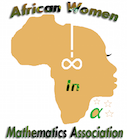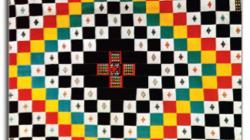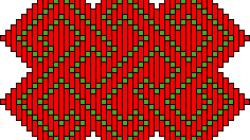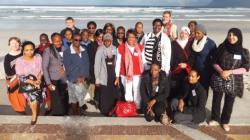
I eat Maths, I drink Maths, I dream Maths, I walk Maths and of course I sleep Maths
Education
- 2005: PhD. Mathematical Epidemiology. University of Zimbabwe (UZ)
- 1997: MSc. Mathematical Modelling. UZ
- 1993: B.A. Special Honours in Mathematics. UZ
- 1982: Graduate Certificate in Education. UZ
- 1981: Bachelor of Arts General (Majoring in Mathematics). UZ.
Professional experience
- 2003 to Present : Mathematics Lecturer rising to Full Professor of Mathematics at National University of Science and Technology
- 2001 to 2002 : Mathematics Lecturer at University of Zimbabwe
- 1996 – 2000 : Staff Development Fellow at University of Zimbabwe
- 1989 – 1995 : Mathematics Lecturer at Hillside Teacher’s Training College
- 1982 – 1988 : Mathematics Teacher at Townsend High School
- 1984-2002: Examiner and Chief Examiner Cambridge O-Level Mathematics. Examination in Zimbabwe.
Honors and Prizes
- Awarded African Mathematics Millennium Science Initiative (AMMSI) Research Fellowship 2006.
- Awarded visiting researcher fellowship by African Institute for Mathematical Sciences (AIMS) 1 June 2009 to 31 May 2010 at AIMS, University of Stellenbosch.
- Awarded first African visiting research fellowship at DIMACS: October 2009 to January 2010.
- Awarded Megafest Business for “Personality of the year (2012) for outstanding community work in Matebeleland through National University of Science and Technology School Enrichment Program (NUSTSEP) for STEM subjects.
- Awarded a Prize for Outstanding Research in Promoting and Maintaining Good Health with one of my research project on “Hospitalization and Community home-based care for people living with HIV/AIDS” by the Research Council of Zimbabwe in 2013.
- Awarded an Apple Ipad by the then Minister of ITC, for outstanding research for a female researcher 2013.
Questionnaire
Your story with mathematics
Can you tell us something about your story? Why did you join the field of Mathematics? How did you discover your passion for mathematics? Or When have you decided to be a mathematician and why?
My name is Senelani Musekwa (nee Hove) from Zimbabwe. I am a married woman who graduated with Mathematics degree up to PhD level. I taught Mathematics in secondary school, teacher’s training college and University. From Primary School my best subject was Mathematics. I real enjoyed my mathematics leading me in helping other students with their Mathematics and Science. The most important key points to be emphasized in my teaching of Mathematics were explained using activities done at home. I am now a Full Professor of Applied Mathematics at National University of Science and Technology. I joined the field of Mathematics after realizing that nearly all of the activities I did at home and Primary School started off with some mathematical concepts in the home or in the environment. From Primary School my best subjects were Science and Mathematics. I really enjoyed my mathematics, leading me to help other student. While I also liked to be a Medical Doctor, this ambition was made impossible by the fact that I did not do specific science subjects like Chemistry, Physics and Biology at Ordinary and Advanced Level. I did General Science. Therefore Mathematics became my favorite subject and I do not regret. The application of Mathematics in any field made me to work with students since some students have no knowledge of where mathematics is used in real life situation. The application of Mathematics to disease modeling led me to choose to do a degree majoring in the application of Mathematics (Mathematical Epidemiology in particular). I later did this in my MSc and PhD studies majoring with mathematical Epidemiology. After achieving my MSc and PhD qualifications I embarked on research in Mathematical Epidemiology. Most of my 43 research papers published in international renowned journals are in Mathematical Epidemiology. In conclusion I decided to be a mathematician to enable me to use it in disease modeling.
What fascinates you about Mathematics?
I am fascinated by the fact that Mathematics can be used to solve real life problems. I always tell my students that “I eat Maths, I drink Maths, I dream Maths, I walk Maths and of course I sleep Maths”
Did you have a role model that influenced your decision to become a mathematician?
My mother inspired me, because she also wanted to be a mathematician but could not proceed because she got married after doing Sub B. I see application of Mathematics everywhere.
Has anyone supported you in your choice and during your career?
A number of people and organizations helped me to achieve my desire to be more than a medical a doctor I wanted to be. I am very much indebted to many people and organizations. In particular I thank my husband for the support he gave me to achieve my dream of being a qualified Mathematician. While he just have a first degree in Biological science, he encouraged me to go back to University to achieve my heart’s desire, that is, to have a PhD in Mathematics and carry out research for different diseases. That is why my research area is in disease modeling using both Ordinary differential equations and Stochastic modeling.
Were there any specific factors that helped you succeed? What challenges did you encounter on the way?
Determination and support from one of my teachers, my employer and husband, made me to succeed. It was made easier by the support I got from my family and from my Science teacher at secondary school as well as other well wishers. The challenges I had of paying my school fees made me cry every time when I was sent away from school for not paying school fees. However I was given a job during holidays to enable me to get money for my day to day needs and school fees as well. Eventually my Science teacher helped me after I agreed to baby sit his daughter every weekend and holiday time. Although he had left Zimbabwe during the war period, he paid my fees for Form 5 (L6) and Form 6 (U6) studies. He also sent me bus fare and pocket money. Fortunately, I passed and went to University of Rhodesia then where I was given World University Scholarship to finish my undergraduate studies graduating with my first degree.
What is the funniest or most memorable thing that has happened to you while working in mathematics?
Most memorable thing which happened was the fact that I did my research on application of Mathematics in Medicine, that is, disease modeling. To me this was better than doing a degree in Medicine which was my dream career. I really enjoy teaching and researching in Mathematical Epidemiology.
Career and Family
Do you come from an academic family?
Not really to start with because my two brothers who did O-level went to look for jobs because of lack of funding to pursue their studies. My nephews and nieces then followed my footsteps in Arts subjects because I was then able to fund them. They are also academics lecturing at University level.
How does your family regard your career choice?
My family is happy with my career choice, in particular, the application of mathematics in disease modelling, which is closer to a Medical Doctor.
Is it hard to manage both career and private life?
It is not hard to manage both career and private life as long as one plans for each activity. The support I got from my husband and children made it easier for me.
Do you have kids? Tell us about balancing family life with work life?
Yes I do have children. One needs to be organised to balance family life and work life. My family is very supportive of whatever I do.
Women and Mathematics
What were the biggest obstacles you had to overcome? Did you ever have the impression that it would be easier/harder if you were male? Do you have anything else that you’d like to tell us about?
The biggest obstacle I overcame was funding for my education in secondary school. I never blamed my parents for choosing to fund the boys when my father was out of employment. However self determination made it easier for me to realise my dreams of graduating with a doctorate in Mathematics. My husband encouraged me to carry out research in disease modelling. This helped me to become a Full Professor in Mathematics. My worry is that very few girls and women like mathematics. I believe there is need to keep on encouraging the girl child to study Mathematics as well.
FOR THE GIRL CHILD TO STUDY MATHEMATICS IS ESSENTIAL.
Did you encounter any specific difficulties relating to the field of mathematics?
Encouraging the girl child to do STEM subjects, in particular, Mathematics, was/is not easy and also funding for the girl child to study Mathematics at a higher level was/is not easy. On my part, not really, since I was working and therefore I funded myself to carry out research in Mathematical Epidemiology and going for conferences. However, I had problems in seeking funding for the girl child to go for conferences. I thank my University administrators for funding me and the girl children in some cases, in particular, to go for conferences and workshops and of course sabbatical leave to help me with my research.
Tell us about the organizations for women mathematicians that you are a part of? How has this helped your career?
In my country, Zimbabwe, I helped in the formation of Zimbabwe Mathematics Association where I am the Chairperson of the Association. We also formed Zimbabwe Women in Mathematics Association. African Women in Mathematics Association (AWMA), where I am the Secretary, has helped me to meet other women in Mathematics in and out of Africa and share ideas on how we can encourage other women and young girls to embark on a carrier that needs Mathematics and Science. This also encouraged women to embark on courses which require Science, Technology, Engineering and Mathematics (STEM). In my country, Zimbabwe, a number of girls have now enrolled in STEM courses in our Universities as a result of the outreach which we made in encouraging women and girls to embark on courses in the STEM disciplines. This helped me to carry out research on how best to help the girl child in achieving their goals.
Do you consider it necessary to organize special programs like Girl’s Day promoting mathematics for girls in schools? What else, do you think, could further be done to support woman with mathematics as their career?
It is very necessary to have these special programs like Girls in Mathematics. In addition we can have camps on the teaching and learning of mathematics. This will help to demystify the subject and also help teachers to share different methods of teaching Mathematics. Highlighting the importance of Mathematics in STEM disciplines can help women to realize the importance of having a career in Mathematics or other STEM disciplines..
Teaching mathematics, especially to non-mathematicians, can be a challenge. What is your strategy to catch and keep the attention of your audience?
It is very necessary to have these special programs like Girls in Mathematics. In addition we can have camps on the teaching and learning of mathematics. This will help to demystify the subject and also help teachers to share different methods of teaching Mathematics. Highlighting the importance of Mathematics in STEM disciplines can help women to realize the importance of having a career in Mathematics or other STEM disciplines.
How would you explain your research to a layman (non-specialist)?
Starting with examples where mathematical concepts are used in different situations and at home, in particular, will help a layman to realize mathematical concepts which are surrounding him or her. Embarking on research which reveals the uses of mathematical concepts in day to day activities in our lives makes people appreciate Mathematics.
Can you tell us about the applications of your research, if any?
I have done mathematical researches in the dynamics and interventions of different types of diseases. This helps people and policy makers in particular, to understand the dynamics of different types of diseases and how best to prevent them. In a addition it is important to include the costeffectiveness of the interventions, that is the cost on interventions used to combat the disease and to measure the cost of the different interventions of the different diseases to help the government, that is, policy makers, to appreciate the importance and needs of the particular interventions in the treatment and prevention of different types of diseases. In two of the researches I did, I did both the dynamics of the disease and included the necessary interventions to eradicate the disease and cost of the necessary interventions. The two researches I carried out are:
1. Modelling hospitalization, home-based care and individual withdrawal for people living with HIV/AIDS in high prevalence settings: The case for Zimbabwe, published in The Bulletin of Mathematical Biology.
2. “Cost Effectiveness Analysis of Hospitalization and Home-Based Care Strategies for People Living with HIV/AIDS: The Case of Zimbabwe, International Scholarly Research Notices. For these two researches I was given a prize by the Zimbabwe Research Council after being judged as the best practical researches.
Conclusion
What are your biggest achievements, and what your biggest failures?
My biggest achievement in my career was carrying out research to solve practical problems leading to my being promoted to Senior Lecturer, Associate Professor and finally to Full Professor of Applied Mathematics as a result of practical research I carried out. This was also due to the fact that I published 43 papers in renowned journals, wrote four book chapters on disease modeling and wrote four Mathematics text books for O Level, that is, Form 1 to Form 4. Beside research and text book writing, I introduced a program called National University of Science and Technology School Enrichment Program (NUSTSEP) to help students, in particular the girl child, doing O-Level and A-Level STEM subjects. This program uses activitybased methods for teaching the different concepts to the students. This resulted in more students passing their O and A level STEM subjects. In addition, I introduced this program for any student who need help with STEM subjects and English language and able to sponsor him/herself. This program is done at National University of Science and Technology (NUST) School Enrichment Centre (NUSTSEC) which was bought by the University for outreach Programs. A number of students enrolled at this centre are helped with their STEM subjects. The same teaching methods, that is, activity based methods, is used at this centre. My biggest failure was to concentrate on students with potential to pass the STEM subjects instead of also introducing a program for the weak students and also to source funding for those poor students who cannot afford the required fees. However we are now working on it.
Do you have a dream? Any particular problem you dream to solve now?
My dream is to include more girls from rural areas into the programs where they don’t have qualified teachers for STEM subjects. I also intend to have more workshops for STEM teachers in rural areas. Final I want to help undergraduate students to do research. I intend to introduce research to undergraduate students, girls in particular, before they go for attachment by having a workshop for all second year students for 2 to 3 weeks to introduce them to research before they go for attachment. This is work in progress and I hope and trust if funds become available this will in January 2019.
Which advice would you give to young girls who want to engage a career in mathematics?
My advice will be given to the girls during workshops for all young girls to introduce them to the importance of Mathematics in a number of careers they want. Through the NUSTSEP and NUSTSEC programs, I will introduce them to the importance of mathematics in the different carriers before they go to university.






